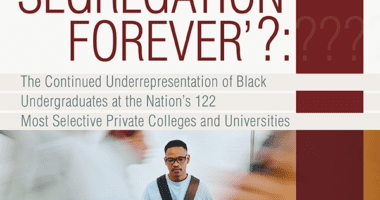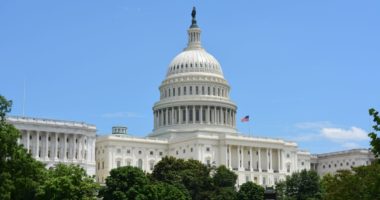Blog: Is Tufts’ Lack of Diversity Undermining Its Civic Mission?
The White House recently hosted a summit on civic engagement at one of the nation’s most elite and least diverse institutions of higher learning, Tufts University. This venue was most likely selected because of Tufts extensive, and rather unique, curricular and co-curricular emphasis on civic education and engagement. However, we couldn’t help but wonder if Tufts’ lack of diversity made the university a poor choice as the venue for the White House summit.
Despite being just a 15-minute drive from downtown Boston, Tufts has fewer than 11 percent of first-year students receiving Pell Grants and fewer than 11 percent of black (4.4 percent) or Latino (6.4 percent) students. Among colleges with similar admissions standards, only William and Mary has a lower percentage of Pell Grant recipients among freshmen, and only Brandeis and the University of Rochester have lower percentages of underrepresented minority students. Worse still, while many of its peers have made progress over the last few years in increasing socioeconomic diversity by enrolling more Pell Grant students, Tufts has barely budged.
So what does diversity have to do with civic engagement? Well, as you probably know, civic engagement involves individual and collective action (e.g., voting, holding office, etc.) designed to identify and address issues of public concern. This is the bedrock of a healthy and functional democratic society, but civic engagement can’t just be about “how many participate.” We can’t forget that “who participates” is equally as important.
When “who participates” is overlooked, you end up with a system where the rich and money-backed interest groups mostly shape policy — much like the one we have now. Under the excuse of being selective and elite, Tufts is complicit in this trend, housing a student body that perpetuates the separation of the “haves” and the “have-nots.” Thus, even with its emphasis on civic education and engagement, without the will to serve more students of color and low-income students, the university’s commitment to serving the public good is, at best, incomplete or — worse yet — simply rhetoric. Is that the best place for a White House summit on civic engagement?
An ideal choice would be an institution with a curricular focus on civic engagement and a student body more representative of all Americans, which could add a diverse perspectives to the classroom and engage in the curriculum in a critical way. Imagine the good that Tufts, and other universities of its ilk, could do for the nation if they opened up their ivory towers to individuals and communities that have always been largely excluded. Instead, these institutions sit quietly and continue admissions processes that reward privilege and further aggravate growing inequality and skewed power structures that exclude and largely ignore the poor and people of color.
Tufts (and others) should learn that “who participates” matters!









